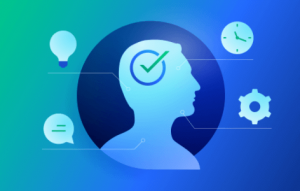
The most robust security environment that you can create for yourself online depends on a balance of two factors: the security features of the platform you’re using and your own habits regarding your safe online behavior.
In the context of using a financial service like a digital wallet app or your bank’s website, this balance becomes more significant and sensitive.
In addition to taking advantage of all the security features you have at your disposal, you must also ensure that the way you manage your money online is always safe and that you aren’t leaving any crumbs behind for hackers or scammers to follow.
Here are 13 steps we recommend to take to ensure safe financial activity on all digital platforms.
Create strong passwords
Your banking or digital wallet app password should be a combination of letters, numbers, and special characters. Make the password as complex as you can — and don’t worry about remembering. A good password management tool will take care of it.
The idea is to use passwords that are hard to guess. The more difficult your password is, the safer your accounts will be.
For an added layer of protection, always use different passwords for different platforms so if one account gets compromised, it doesn’t lead to more trouble.
Never share your password, PIN, OTPs, or other sensitive data
No matter how much you trust the person you want to share these details with, don’t. In case of security breaches, it becomes extremely difficult for law enforcement to track down hackers when login details are shared within families or with friends.
In the same vein, don’t share your passwords and other sensitive data on random calls and texts. Scammers usually pose as bank representatives when conducting their phishing activities.
Also, pay close attention to emails that you receive from your bank. If you see any errors, broken links, bad grammar, or suspicious links, do not click on them or follow the emails in them. Report it to your bank and keep your data and funds safe on the internet.
Enable multi-factor authentication
Two-factor authentication was a groundbreaking innovation in the cybersecurity realm. It gave an extra layer of protection to all the sensitive data online and helped pave the way for more people to look more favorably toward digital financial solutions.
Two-factor authentication works by providing an entry barrier after a login attempt. Typically, you receive an OTP on your email or mobile phone, which you need to enter to gain access to your account.
We now have multi-factor authentication protocols in place too. These increase the number of entry barriers to your money and information and allow you to conduct your online money management more safely.
Enable failed login notifications too
Failed login notifications tell you that someone tried to log in to your account. If you have got multiple-factor authentication set up, or have a complex password that’s difficult to guess, it’s entirely possible that hackers might be trying to get into your digital wallet, but failing.
In such an event, a notification alerting you to a failed login attempt tells you that you need to take additional measures and ensure that all your accounts are secure.
Do not use public wifi when accessing your finances online
You can never be 100% sure of the security of a mall or airport wifi. To err on the side of caution, never access your online banking or digital wallet apps when using any public wifi. Patchy security of public wifi networks is often used by scammers and hackers to gain access to people’s bank accounts.
To save yourself from such a fate, always do all your online banking at home.
Use an encrypted password management tool
We’ve talked to you about using really complex passwords for all login credentials, especially financial ones. But memorizing all those passwords cannot be easy. And what if you forget one? Or a few?
A password management tool is designed to store all your login information all across the internet. Most of them can save hundreds and thousands of unique and complex passwords. But since an average user only has about 100 unique passwords to manage, a simple password management tool would do.
CNET recommends Bitwarden as its best overall password management tool.
Lock your credit
Protect your financial data from prying eyes and seek to lock your credit with all bureaus. It’s a more comprehensive way to prevent outside sources from looking at your credit score and trying to create fraudulent accounts in your name.
Locking your credit gives you more control than a simple credit freeze. Though it may cost money to lock your credit with all three bureaus, it certainly gives you a higher level of protection too.
Conclusion
Keeping your money safe and your sensitive financial information secure online requires a mix of good online financial hygiene and high-end security protocols provided by the relevant institutions.
By making sure that you engage in safe financial practices online, such as keeping your passwords secure and using multi-factor authentication, you improve the cybersecurity features provided by your financial organization and live more safely on the internet.

